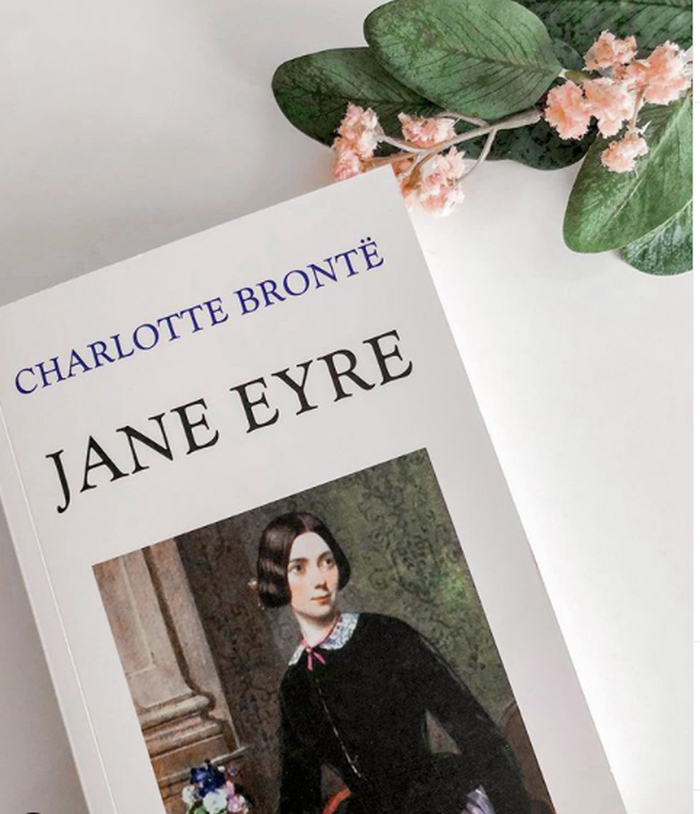Wuthering Heights - a tale of hate
In the second instalment of her column, Scarlet Rowe examines the much-loved classic, Wuthering Heights

Warning: contains spoilers!
Emily Bronte is the elusive and mysterious author of Wuthering Heights. It is her only novel, as she died just one year after its publication. Even though she didn’t have the chance to write another novel, Wuthering Heights is a timeless testament to the incredible (and unsettling) power of her writing.
Safe to say, Wuthering Heights didn’t get off to the best start. In 1850, following Emily’s death, her sister Charlotte wrote a preface to the book. Describing it as a novel 'hewn in a wild workshop’ out of ‘homely materials,’ Charlotte wrote that Emily ‘did not know what she had done’ in exploring such outrageously un-feminine topics as twisted desire and curious, unearthly hatred. Charlotte then proceeded to label her sister ‘a native and nursling of the moors,’ adding that had she lived in the town, her writing would have ‘possessed another character.’ Granted, had she written in a town, her novel may have been a little more to Charlotte’s liking. Yet as an undeniable child of nature, the novel could not be so morbidly bewitching if it weren’t for the lonely and unusual companion it found in the Moors.

‘Whether it is right or advisable to create beings like Heathcliff, I do not know: I scarcely think it is,’ Charlotte told the reader (one must question her motives by this point...). Heathcliff is a man possessed with enormous quantities of cruelty and hatred. One example of his fascinating evil is found when he first meets his nephew Hareton:
'Now, my bonny lad, you are mine! And we'll see if one tree won't grow as crooked as another, with the same wind to twist it!’
Whilst it seems that no one is exempt from his burning wrath, Heathcliff finds himself deeply in love with Catherine, who is betrothed to her childhood sweetheart Edgar. On hearing the news, Heathcliff is deeply hurt, escaping Wuthering Heights in the dead of night without trace.
He returns without warning.
He wants to see both Edgar and Earnshaw dead, the latter of whom treated him roughly as a child. Unlike Jane Eyre, who sought no revenge for her hardships, Heathcliff has a terrible kind of murder in mind; that of the soul. His insatiable appetite for the misery and despair of those he hates provide him with a disturbingly destructive life force, which eventually plays a part in the death of his lover and of himself.
That said, he is certainly not the only one with such a command over the darker side of human nature in the novel. Most characters, with a few exceptions like Edgar and maybe Nelly, demonstrate an easy cruelty.
For example, Catherine accuses Heathcliff of killing her, knowing full well that this will torment him for the rest of his life. She says, ‘You have killed me- and thriven on it.’ Minutes later, whilst Heathcliff is ‘covering her with frantic caresses,’ he asks Catherine:
‘Would you like to live with your soul in the grave?’
This naturally sends her into a torrent of tears. In a moment of comforting genius, he adds, ‘I love my murderer- but yours! How can I?’
Catherine dies later that day.
Such evocative and chilling passages come to characterise the book, giving it its darkly enchanting nature. Indeed, Catherine’s untimely death continues to haunt Heathcliff throughout the rest of his life. He soon comes to realise that he ‘cannot live’ without his life (being Catherine), he cannot live without his soul. He exists in a world where he is reviled and in turn, reviles.
We will conclude with the book’s beginning. Mr Lockwood, who is renting Heathcliff’s (dubiously acquired) Thrushcross Grange, finds himself with no other choice but to sleep in the unwelcoming Wuthering Heights for the night.
An ‘intense horror of nightmare’ comes over him.
Sleeping in Catherine’s childhood room, he finds her diary and reads it. That night, he comes face to face with her in a dream which is presented as horrifyingly real. A melancholy child sobs from outside the window:
‘Let me in- let me in!... I’m come home: I’d lost my way on the moor!’
She explains that it’s been ‘twenty years’ since she was abandoned on the Moors. And yet ‘terror’ made Mr Lockwood ‘cruel’, who locked her out and made her bleed (though she still persisted). When Heathcliff learns about the ‘dream,’ if we can call it that, he struggles to ‘vanquish an excess of violent emotion.’ This serves as yet more proof that he really cannot live without Catherine in the conventional sense of the word.
Following Emily Bronte’s death, five reviews were found on her desk. One anonymous reviewer in Douglas Jerrold’s Weekly Newspaper (1848) said:
‘Wuthering Heights is a strange sort of book,–baffling all regular criticism; yet, it is impossible to begin and not finish it; and quite as impossible to lay it aside afterwards and say nothing about it.’
They couldn’t have been more right.
 Comment / College rivalry should not become college snobbery30 January 2026
Comment / College rivalry should not become college snobbery30 January 2026 Features / Are you more yourself at Cambridge or away from it? 27 January 2026
Features / Are you more yourself at Cambridge or away from it? 27 January 2026 Science / Meet the Cambridge physicist who advocates for the humanities30 January 2026
Science / Meet the Cambridge physicist who advocates for the humanities30 January 2026 News / Cambridge study to identify premature babies needing extra educational support before school29 January 2026
News / Cambridge study to identify premature babies needing extra educational support before school29 January 2026 News / Vigil held for tenth anniversary of PhD student’s death28 January 2026
News / Vigil held for tenth anniversary of PhD student’s death28 January 2026










